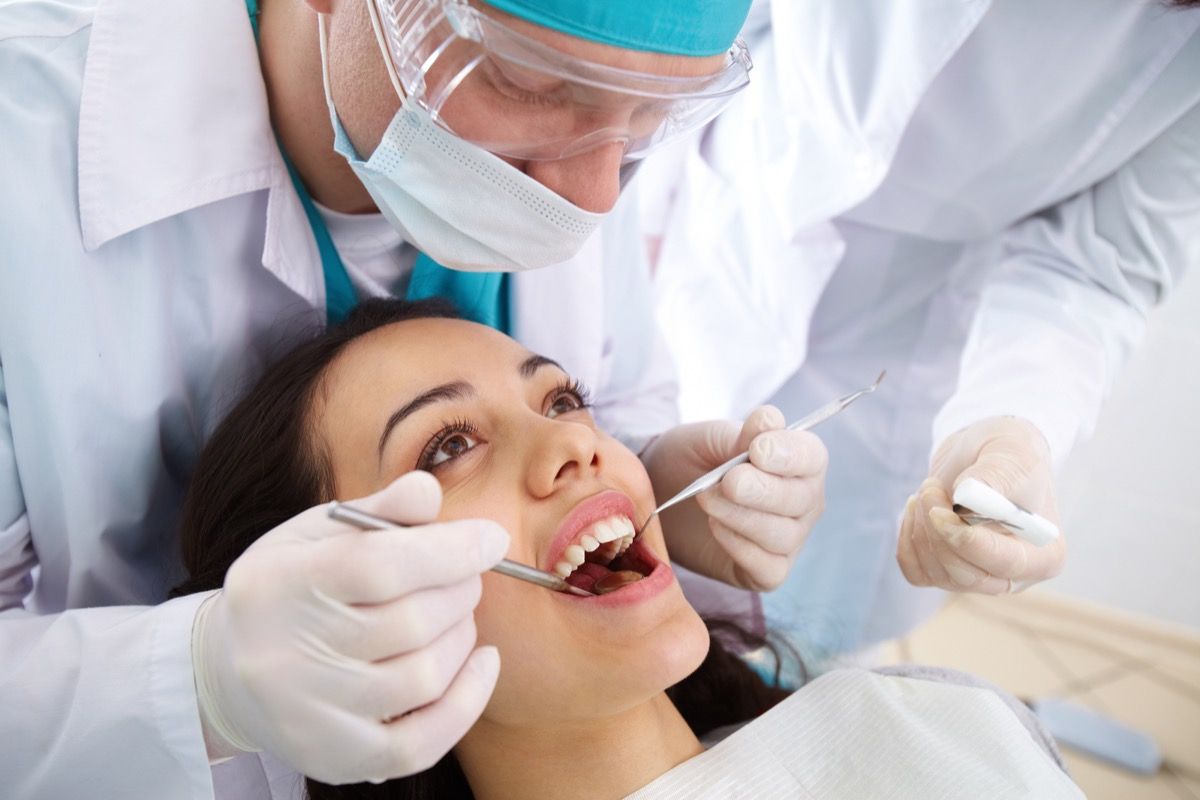In a recent statement, the global health organization recommended that all non-essential dental care be postponed until COVID transmission levels are lower. “WHO advises that routine non-essential oral health care—which usually includes oral health check-ups, dental cleanings, and preventive care—be delayed until there has been sufficient reduction in COVID-19 transmission rates from community transmission to cluster cases or according to official recommendations at national, sub-national, or local level,” the experts note. “The same applies to aesthetic dental treatments.” WHO instead suggests that dentist appointments be moved to remote phone or video consultations. “A remote conversation is probably the wiser step to take at this juncture,” Neetu Singh, MD, the oral health program director at Health Care For All in Boston, told The New York Times in late June. However, WHO clarified that “urgent or emergency oral health care interventions that are vital for preserving a person’s oral functioning, managing severe pain, or securing quality of life” were excluded from their recommendation. While dental practices have been allowed to reopen in all 50 states since June, the act of visiting the dentist still poses a risk of COVID-19 transmission, The New York Times reports. This is mostly due to the spread of airborne particles from patients to dentists who are exposed to saliva and respiratory droplets while they work closely on patients with their open mouths—not to mention the many tools and dental devices, such as sprays and drills, that can spread the virus into the air.ae0fcc31ae342fd3a1346ebb1f342fcb But if you absolutely must seek help for a serious tooth issue, try booking an appointment for earlier in the day to cut down on potential exposure and know that your dentist’s office is likely doing all they can to keep everyone safe. “We’re adding more time between patients to be able to disinfect the room,” Eli Eliav, MD, director of the University of Rochester’s Eastman Institute for Oral Health in New York, told The Times. “I understand why people are anxious and concerned. That’s part of our job—to make sure that people are comfortable coming back.” RELATED: For more up-to-date information, sign up for our daily newsletter. If you decide to skip the dentist due to COVID-19 fears, know that it’s pivotal to be practicing good oral hygiene habits at home to avoid any issues that could actually increase your coronavirus risk. Shervin Molayem, DDS, an oral dentist surgeon in Beverly Hills, recently told an NBC News affiliate that there’s a link between bad oral hygiene and the coronavirus. Dirty teeth and gums can lead to increased levels of a protein called IL-6, Molayem says, which can raise your risk of dying from COVID-19 should you contract the virus. A July study from George Washington University found that high IL-6 levels were observed in “patients requiring ICU admission, in patients with acute respiratory distress syndrome, and in non-survivors.” To help keep your mouth healthy, Molayem says you should brush your teeth twice a day for at least two minutes each time, floss twice a day, and rinse with mouthwash. In fact, though mouthwash can’t treat COVID-19 or protect you from catching the virus, it may help to reduce the viral load should you become infected. Thirty seconds of gargling with mouthwash can actually lower the amount of coronavirus in your body if you do contract the disease, according to a recent study published in the Journal of Infectious Diseases. And if you want to avoid a trip to the dentist, check out 25 Things You’re Doing That Would Horrify Your Dentist.
